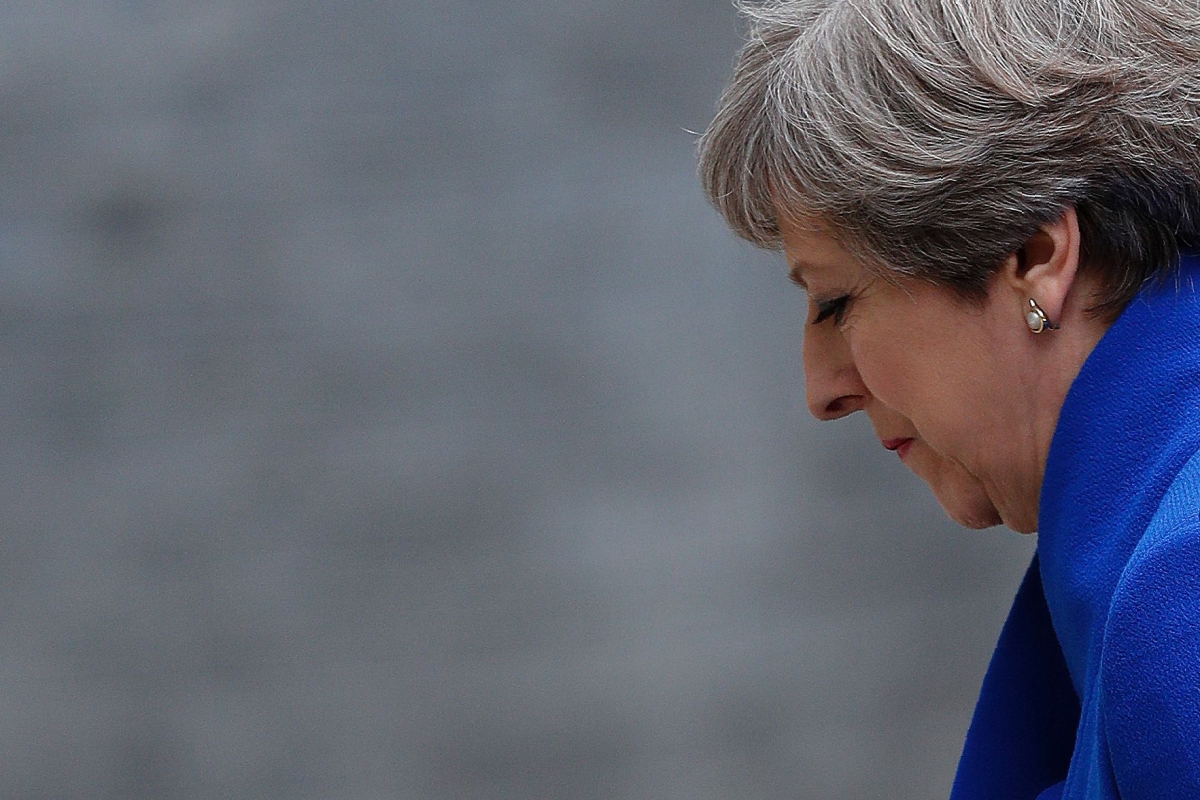U.K. Political Chaos Intensifies as No DUP Deal Reached Yet

EghtesadOnline: U.K. Prime Minister Theresa May’s hopes of clinging to power were dealt a fresh blow after her office was forced to admit that it hadn’t, after all, reached a deal to govern with the support of Northern Ireland’s Democratic Unionist Party, hours after announcing that it had.
May’s office said at 7.30 p.m. on Saturday it had “agreed to the principles of an outline agreement” in which the DUP would back the Conservatives on some key votes, ensuring the premier has a majority in the House of Commons. At midnight, the DUP said the talks would continue next week, and a half-hour later, the premier’s office issued another statement, saying that the accord hadn’t yet been finalized, Bloomberg reported.
Mail on Sunday tripe - I am backing Theresa may. Let's get on with the job
— Boris Johnson (@BorisJohnson) June 10, 2017
After the Conservatives lost their parliamentary majority in Thursday’s election, the chaos capped a Saturday that saw her two chiefs of staff quit and Foreign Secretary Boris Johnson describing a Mail on Sunday newspaper report he was preparing to mount a coup against her as “tripe.” But while the prime minister fought to win the support she needs to stay in power, she still told German Chancellor Angela Merkel she plans to start Brexit talks on schedule in a couple of weeks.
“Theresa May is a dead woman walking,” George Osborne, whom May fired as chancellor of the exchequer last year and now edits London’s Evening Standard newspaper, told BBC Television on Sunday. “It’s just how long she’s going to remain on death row.”
Alternative Program
The balance of seats in Parliament means that the Conservatives are best placed to form a minority administration but will struggle to pass controversial legislation without the backing of the DUP, the only small minor party willing to countenance backing May. Opposition Labour Party leader Jeremy Corbyn, boosted by his unexpectedly good election performance, told the BBC he will put forward an alternative program for government and invite lawmakers to vote for it.
“I think it’s quite possible there’ll be an election later this year or early next year, and that might be a good thing because we cannot go on with a period of great instability,” he told the BBC. “We have a program, we have support and we’re ready to fight another election campaign.”
Some members of the cabinet finally appeared to defend May on Sunday morning, with Defence Secretary Michael Fallon, Transport Secretary Chris Grayling and Culture Secretary Karen Bradley in the TV studios. Conspicuous in their absence were the three most senior Cabinet ministers: Johnson, Chancellor of the Exchequer Philip Hammond and Home Secretary Amber Rudd.
Fallon said May is going to change her style to reflect the fact that she has to govern without a majority. “She absolutely understands that a minority government will require a different approach, a more collective approach,” he told the BBC.
Consensus Needed
The prime minister is also under pressure from pro-European members of her party to rethink her approach to Brexit, having asked the electorate to endorse her stance, and been knocked back. “She’s got to form a consensus,” lawmaker Anna Soubry, a former minister, told the BBC. “The British people have rejected a hard Brexit.”
Ruth Davidson, who led the Scottish Conservatives to gain a dozen seats on Thursday in contrast to the party’s performance in England and Wales, also called for a rethink on Saturday, saying the Tories had to work with other parties on Brexit.
But these views will anger those Tories who are deeply committed to getting out of the European Union. They found an unlikely ally in Corbyn, who said Labour too wants to see Britain all the way out of the bloc.
To survive, May will have to show considerably more nimbleness that she has demonstrated since the election result. The day after he failed to win a majority in 2010, David Cameron seized the initiative, outflanking incumbent Prime Minister Gordon Brown by giving a news conference pushing for a coalition deal with the Liberal Democrats.
Dodged Questions
May, by contrast, made a statement that mainly succeeded in angering her party by failing to acknowledge that some lawmakers lost their seats, then gave a brief TV interview in which she dodged questions about the election result before going to ground.
The idea of a deal with the DUP is also problematic, first because the minor party is opposed to gay rights and abortion, but more significantly because it risks destabilizing Northern Ireland’s peace deal if the U.K. government relies on the support of one side to stay in office.
A tie-up with the DUP will also make it difficult for May to pursue a “no deal” Brexit, as that would mean the return of frontier controls on the Irish border, something likely to damage the region’s economy.
But Tories displayed little appetite for May’s immediate departure. With Brexit talks due to start in days -- and Irish Foreign Minister Charlie Flanagan dismissing any suggestion of a delay in an ITV interview -- their focus seemed to be on securing a deal that ensures they stay in government.
“She’s set to go in due course,” Soubry told the BBC. “We don’t want her to go now.” She suggested that May would depart before the end of the year. Former Education Secretary Nicky Morgan told ITV that May could depart “over this summer.”
The Conservatives are eager to avoid another election. A survey carried out Saturday by Survation -- the polling company that got closest to getting last week’s result right -- put Labour six percentage points ahead of the Tories.


